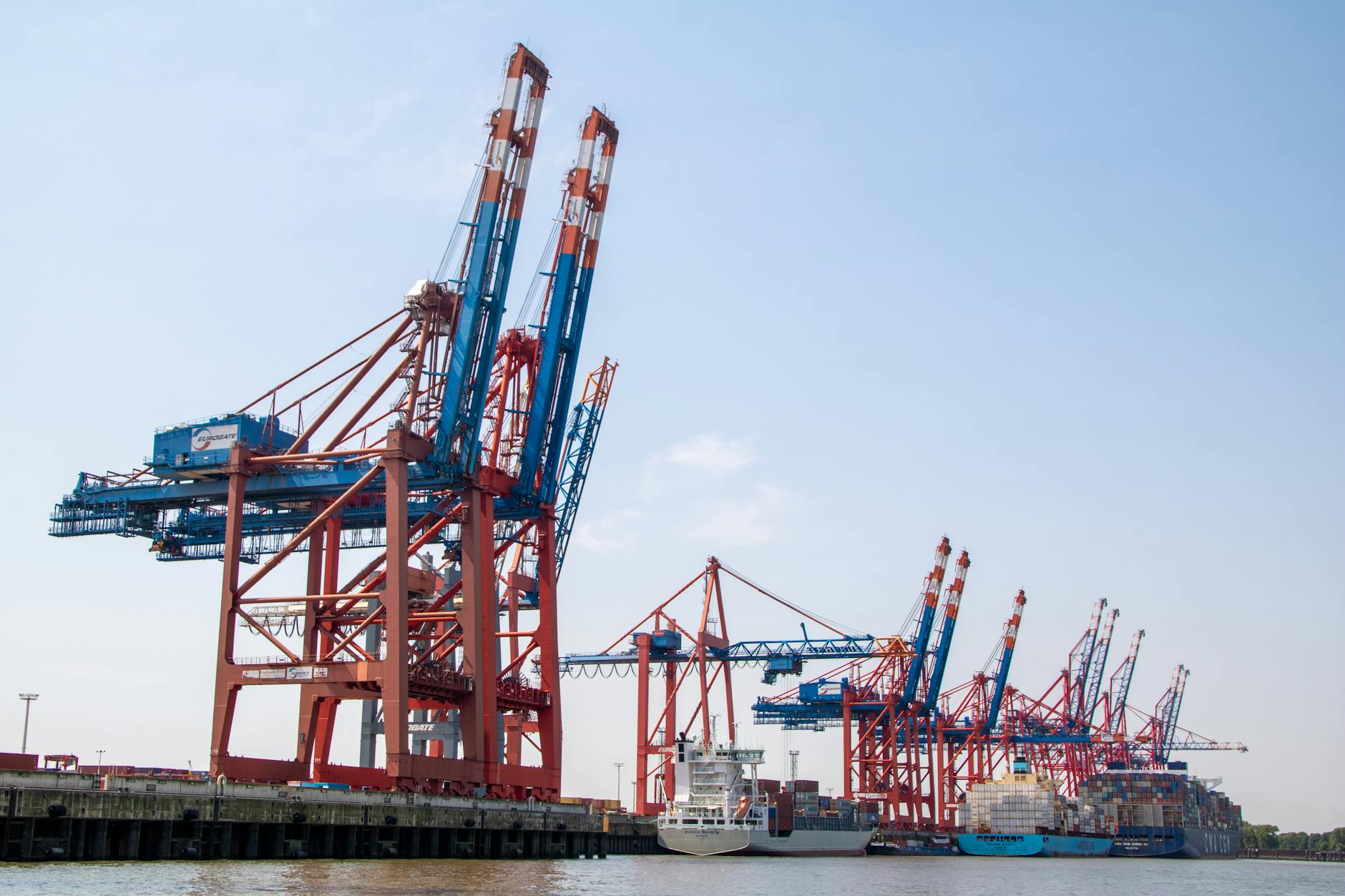How to Streamline Logistics Processes in Australia with Innovative 3PL Strategies

Exploring Innovative 3PL Strategies
In Melbourne's ever-evolving supply chain landscape, I often draw inspiration from the vibrant scene at the Melbourne Business School and innovation centres like the Melbourne Connect. Working within this dynamic environment, I've seen firsthand how 3PL logistics can be revolutionised through smart strategies. One of the key areas of improvement lies in the implementation of automation and robotics. These technologies are truly transforming operations, not just by speeding up processes but by enhancing accuracy and reducing human error.
Another crucial innovation is harnessing AI for predictive analytics. This approach empowers supply chain professionals to foresee potential challenges and adjust strategies proactively, effectively preventing costly delays or overstock scenarios. In my experience, leveraging AI algorithms has consistently yielded insights that keep our consignments on track and meet customer demands with precision.
Warehouse management systems have also seen significant evolution through the integration of advanced technologies. By embracing these systems, you can gain a clearer picture of inventory management, optimising storage and retrieval processes. The technologies are supported by data-driven strategies, enabling informed decision-making and streamlined operations.
For supply chain enthusiasts like Liam Patel, understanding these strategies isn't merely academic—it's about applying them to real-world scenarios to drive tangible results. The benefit is reflected in reduced operational costs, enhanced supply chain efficiency, and a competitive edge within the market.
Optimizing Inventory Management
Implementing Just-in-Time Inventory
In the thriving logistics landscape of Melbourne, adopting a just-in-time (JIT) inventory strategy is crucial for aligning with the dynamic demands of the market. JIT allows businesses to reduce excess stock by syncing supply orders directly with production schedules. This strategy decreases inventory holding costs and enhances cash flow. By focusing on 3PL warehouse solutions, companies can ensure rapid and efficient deliveries tailored to immediate needs. The JIT approach requires close collaboration with suppliers to achieve a seamless operation and avoid any disruptions.
Leveraging Real-Time Data Tracking
With the aid of real-time data tracking, businesses can gain a detailed overview of their inventory levels, allowing them to respond swiftly to changes in demand. Innovative centres like the Melbourne Connect are fostering this capability through cutting-edge technology. By utilising platforms that offer real-time updates, companies can improve accuracy in stock management, reducing the risk of oversupply or stockouts. Incorporating real-time analytics into inventory management systems provides actionable insights, ensuring that supply chains are both resilient and adaptive.
Integrating Demand Forecasting Models
Demand forecasting models are vital in anticipating market trends and aligning inventory strategies accordingly. These models use historical data and modern analytical tools to predict future demand, facilitating more informed decision-making. Effective integration of demand forecasting into existing systems can significantly enhance inventory accuracy and operational efficiency. As a result, businesses can better align production and distribution efforts, reducing waste and optimising resource allocation. This data-driven approach empowers organisations to maintain a competitive advantage in the fast-paced economy.
Streamlining Transportation Operations
Adopting Route Optimization Software
As a supply chain innovator, I understand the critical role that route optimisation software plays in streamlining transportation operations to improve delivery efficiency. By harnessing data-driven strategies, I can pinpoint exact delivery routes that minimise time, reduce fuel consumption, and enhance service levels. Similarly, networking events in Southbank provide an excellent platform for professionals to exchange insights on the latest advancements in logistics technology.
Exploring Sustainable Transport Solutions
Sustainability is no longer just a buzzword; it’s a core component of modern logistics operations. I focus on exploring sustainable transport solutions, from investing in vehicles powered by alternative energy sources to implementing carbon-offsetting initiatives. These practices not only help in reducing environmental footprints but also resonate with the values of stakeholders who prioritise eco-friendly approaches.
Coordinating Multi-Channel Distribution
The complexity of today's retail environment demands a coordinated approach to multi-channel distribution. To effectively manage this, I integrate various fulfilment channels with robust systems that ensure seamless handling from warehouse to customer delivery. Incorporating efficient pick and pack processes and employing advanced tracking technologies are vital in maintaining accuracy and speed. Engaging with innovation centres like the Melbourne Connect can provide additional inspiration and innovative solutions to optimise these multifaceted operations.
In sum, by remaining at the forefront of technology and sustainable practices, I ensure that the transportation operations are efficient, eco-conscious, and capable of meeting dynamic market demands.
Boosting Efficiency Through Collaboration
Partnering with Local Suppliers
In my experience, partnering with local suppliers can significantly streamline supply chain processes. Working closely with them provides an opportunity to reduce lead times and foster better communication. Additionally, these partnerships often bring about an enhanced understanding of local market demands and trends. By evaluating potential suppliers through a data-driven strategy, like those discussed at the Melbourne Business School, supply chain analysts can make informed decisions that drive efficiency.
Engaging with Technology Providers
The logistics sector continuously evolves, and keeping up with technological advancements is crucial. Engaging with technology providers allows organisations to access cutting-edge solutions that can revolutionise processes, from warehouse automation to real-time tracking systems. For instance, exploring innovations at hubs like Melbourne Connect can lead to fruitful collaborations, offering solutions such as refined pick packing methods to maximise productivity and accuracy.
Developing Strong 3PL Relationships
Building solid third-party logistics partnerships is pivotal for enhancing supply chain efficiency. Attending networking events in Southbank is a unique way to forge these connections, encouraging the sharing of insights and strategies among industry professionals. A good 3PL partnership supports scalable logistics operations, providing flexibility and the capability to handle fluctuating demand seamlessly.
Collaborative efforts across these areas create a robust framework for achieving long-term supply chain success and addressing complex logistics challenges.
Implementing Continuous Improvement Practices
Regular Process Audits
Conducting regular process audits can significantly boost your supply chain efficiency. I frequently recommend employing a data-driven approach to assess each stage of your operations. Evaluating metrics such as lead times, error rates, and cost efficiency is crucial. This can be achieved by leveraging platforms such as those discussed at innovation centres like the Melbourne Connect, often leading to more insightful audits. These audits ensure that your systems are both resilient and agile, essential elements in today’s dynamic market landscape. Emphasising the importance of audits leads to early identification of inefficiencies and guides the refinement of processes.
Cultivating an Innovative Culture
Fostering a culture of innovation within a supply chain is vital. Drawing inspiration from the Melbourne Business School, I focus on encouraging creative problem-solving and continuous learning among teams. Initiatives such as hosting workshops or attending networking events in Southbank can spark new ideas and effective strategies. A foundational part of this cultural shift emphasises curiosity and readiness to integrate emerging technologies. Innovation does not merely mean adopting new advancements but also challenging existing paradigms to enhance performance continuously.
Training on Emerging Technologies
Training teams on the latest technologies is non-negotiable in staying competitive. Allocating resources to upskill staff on AI, IoT, and automation tools is paramount. Not only does this enhance individual competencies, but it also fortifies the overall organisational capability. Engaging with technology providers can facilitate training sessions tailored to specific needs. By investing in such initiatives, you are equipping your workforce to leverage advanced tools for predictive maintenance and inventory optimisation. With these training programmes, organisations can harness technological insights for strategic advantage, ensuring a future-ready supply chain.


